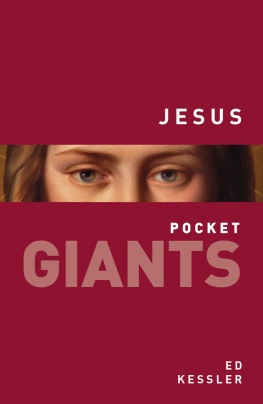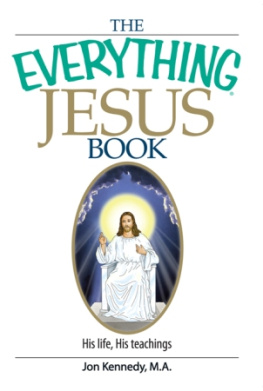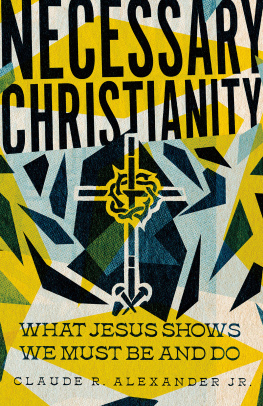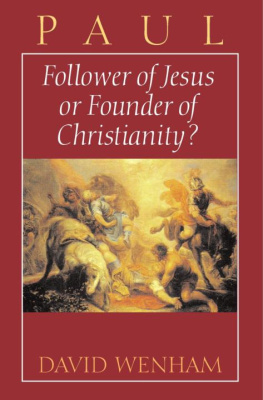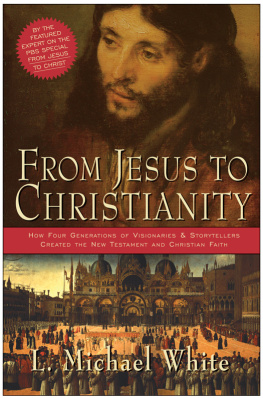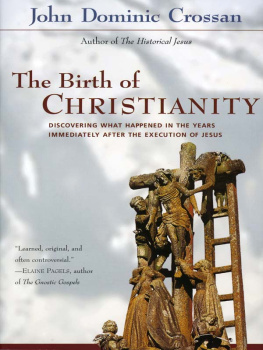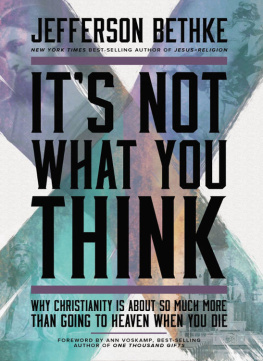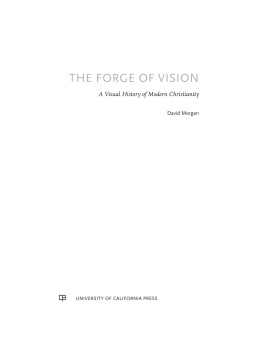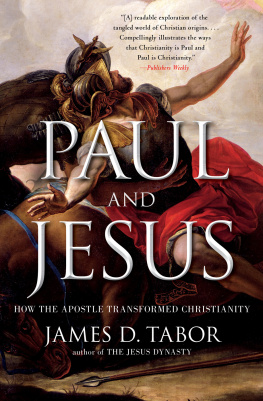Why is Jesus a pocket GIANT?
Because he founded the largest religion in the world.
Because he he is regarded as the most important person in history (Time Magazine).
Because 2.2 billion Christians today view him as the saviour of the world.
Because he connects three world religions, representing half the worlds population.
DR EDWARD KESSLER MBE is a leading thinker in interfaith relations, primarily between Jews, Christians and Muslims. He is Founder Director of the Woolf Institute and Fellow of St Edmunds College, Cambridge.

Cover image: Shutterstock
First published in 2016
The History Press
The Mill, Brimscombe Port
Stroud, Gloucestershire, GL5 2QG
www.thehistorypress.co.uk
This ebook edition first published in 2016
All rights reserved
Ed Kessler, 2016
The right of Ed Kessler to be identified as the Author of this work has been asserted in accordance with the Copyright, Designs and Patents Act 1988.
This ebook is copyright material and must not be copied, reproduced, transferred, distributed, leased, licensed or publicly performed or used in any way except as specifically permitted in writing by the publishers, as allowed under the terms and conditions under which it was purchased or as strictly permitted by applicable copyright law. Any unauthorised distribution or use of this text may be a direct infringement of the authors and publishers rights, and those responsible may be liable in law accordingly.
epub isbn 978 0 7509 8123 1
Original typesetting by The History Press
eBook converted by Geethik Technologies
Contents
Introduction
It may surprise the reader that we know very little about a man who was ranked by Time magazine and Wikipedia as the most important historical figure of all time and who also topped the list of Google searches for the most well known person in history. (Interestingly, in the Google top ten were three other biblical figures: Abraham [third], Moses [fourth] and Paul [fifth].) Yet, the religion named after Jesus fills an immense place in human history, and civilisation itself is unintelligible without an understanding of Christianity and Jesus Christ.
In todays interconnected world, we are not only surrounded by Christian civilisation and culture but we breathe it in; it is part of us all Christian and non-Christian, religious and secular, young and old.
This, it seems to me, refutes the criticism, which dominated Western thinking only a couple of decades ago: religion was a fading entity and secularism would soon push it to the margins and eventually to extinction. This theory of modernisation, based on the theories of Marx, Durkheim and Weber, proposed that as societies modernise they irrevocably grow more secular. Recent history has shown otherwise. Religion is a major driving force in contemporary society and in the words of the American sociologist Peter Berger, the world is as furiously religious as it ever was, and in some places more so than ever.
According to the 2013 Pew Survey, 85 per cent of the global population belong to a specific religion, the largest of which is Christianity (2.2 billion). Although in some countries such as the UK, an increasing proportion do not identify themselves as religious (25 per cent according to the 2011 census) the world as a whole is witnessing a notable resurgence of religions influence including a dramatic expansion of Christianity in China (even though it is officially an atheist state) and new forms of Christianity, such as Pentecostal and Evangelical Christianity which is now the second largest Christian denomination, (estimated at 500 million), after Roman Catholics at 1.2 billion.
Before we begin this exploration of Jesus and explain how he changed the world, I would like to make a confession. Even though there are many scholars who have devoted their life to the study of Jesus and the New Testament, I am not one; nor am I a Christian.
What are the advantages and disadvantages for such a person to write this book? To be an outsider should, in theory, make one impartial but I think it is inconceivable to write an impartial study of Jesus, even if the author is an atheist. Would this book be better, if written by a detached author, without Christian beliefs? Whilst there are advantages to such a position there are also disadvantages. Outsiders too have their own presuppositions, which may make them, unconsciously or not, prejudiced one way or another. Indeed, the outsider may be unable to fully understand a religion or do it justice.
Having engaged in inter-religious conversation and study for more than thirty years, I am aware that one can only truly know a religion from within. Its intimacy does not reveal itself to outsiders, at least not easily. Study is insufficient; one needs familiarity. The secrets of a religion are not simply learned from its literature they are discovered by encountering its adherents, listening to the stories they tell, reflecting on the art they produce, the deeds they do and spending time in the buildings in which they worship.
At the same time, of course, there are obvious disadvantages from writing within, not least the lack of impartiality. Living within a Christian faith may make the writer blind to reasonable criticism and reluctant to acknowledge incoherence or inconsistency. Perhaps no adequate account can ever be written; if you are within you cannot be impartial; if you are without you cannot know.
Both advantages and disadvantages are increased when a Jew writes about Jesus. I am familiar with the environment in which Jesus lived and taught. His thought is not so other. I stand outside the sanctuary of Christianity but live and teach so much among those within that I can appreciate their feelings and their sensibilities. During my teaching career, at least a third of my students have taken positions of leadership in the church and from them (and my Christian colleagues) I have learned, and continue to learn, a great deal. I am familiar with the New Testament accounts of Jesus because in a certain sense, the New Testament is a collection of Jewish writings, much of which was written by Jews; all of it about a Jew. In sum, I claim Jesus as one of my own.
But, the very fact Judaism and Christianity have so much in common and are so closely related makes this book no less challenging to write. Indeed, just where some of the intimacies begin so the two religions differ. The Cross of Christ is indeed a stumbling block for Jews no less a stumbling block than the Torah for Christians.
The challenge is made more demanding because this book is about a person upon whom is based the religion that has an intimate yet traumatic relationship with my own. I write about the person after whom Christianity was named, which has often claimed to have superseded Judaism and has persecuted my forebears. Yet, the same religion has also rediscovered a close relationship with its elder sibling, expressing both admiration and desire for reconciliation. Among Jews themselves there has also been a rapprochement, epitomised by the comment of Jewish philosopher, Martin Buber, who called Jesus his elder brother and also by the publication of Dabru Emet (Speak Truth) in 2000, a document comprising the most positive affirmation of Christianity ever written, signed by over 200 rabbis and other Jewish leaders.
For those readers who start this book with a healthy dose of doubt and cynicism about whether we can know anything about the historical Jesus, in the spirit of Buber I suggest the historicity does not, from one point of view, matter. It is not a question of true or false. There are degrees of historicity, and even kinds, of truth. (As Niels Bohr once said, there are trivial truths and there are great truths. The opposite of a trivial truth is plainly false. The opposite of a great truth is also true.) What intrigues me about Jesus is the meaning of his teachings rather than Christology, the stories taught by and about Jesus rather than the theology itself. In other words, I focus on the narrative not only on what Jesus told his disciples but what that tells us today about what John Templeton called the Big Questions: who we are, where we came from, what is our place in the universe and what, therefore, we are called on to do.
Next page
